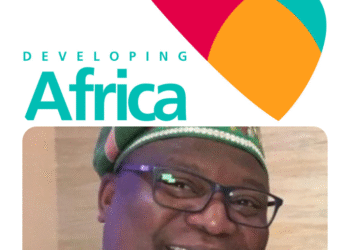Chinedum Treasure
A non-governmental organisation, Public and Private Development Centre (PPDC), has identified political interference and limited transparency as part of factors hampering value and development-driven procurement processes in government circle in the country.
A Senior Program Manager at PPDC, Samuel Akende, disclosed this in Awka during a stakeholders’ meeting on Strengthening Citizens and Vulnerable Group Engagement for Inclusive Governance, organised by the centre in collaboration with Creative Minds Centre for Youth and Community Development (CM-CYCD).
The event, which was attended by participants from various communities, government officials, civil society activists and media professionals, was targeted at enhancing citizens’ skills in project monitoring and community-based engagement, to engender active citizens’ participation in governance processes at the local government level.
Akende described accountability as the most important ingredient in procurement, which remains the backbone of good governance. “Accountability goes a long way in preventing corruption, improving efficiency and building public trust in a governance system.
To hold procurement processes accountable, citizens especially those of us here must be familiar with digital platforms and government must relevant data, which help us to play this civic role very well.
In a welcome address, the Executive Director, Creative Minds Centre for Youth and Community Development, Ugochi Freeman, stressed the importance of citizens’ participation in community governance, which she described as crucial for ensuring that projects and programs of government align with the needs and priorities of the people.

“When citizens are actively engaged in procurement processes, their monitoring and tracking efforts bring about transparency, prevents corruption, and promotes value for public resources.
“We cannot continue to wail over bad governance and poor procurement system, while we allow those in government to do as they like. It is up to us all to make our leaders do the right thing in our collective interest,” she said.
Another facilitator, Mrs Precious Adigwe, who spoke on “Gender Responsive Procurement and Community Engagement, advocated for equity and fair representation of women and other vulnerable groups in the public procurement and governance processes.
“We want an increase in the participation of women and minority groups in business to enhance equitable supplier selection and contractor. That equity is very important because procurement decisions affects men, women and other vulnerable groups”.
“Gender responsive procurement is beneficial in boosting local economy and creating employment opportunities. It enhances reputation and compliance with diversity standards. It reduces gander gap in economic participation and opportunity,” Adigwe said.
In her presentation on Maximizing Digital Tools for Accountability, Dedeye Ebri urged participants to leverage the power of social media and other digital tools to hold institutions and government officials accountable on key projects and policies.
In another presentation, Jonathan Ebe encouraged players in the civic space and community people to take advantage of the Freedom of Information (FOI) Act to access relevant information for effective, result-oriented project monitoring.
“When you back your advocacy up with data, government officials have no choice than to do the right thing. So, for information you seek that are not available to you, you are empowered by the FOIA to write relevant MDAs to request such information,” he added.






